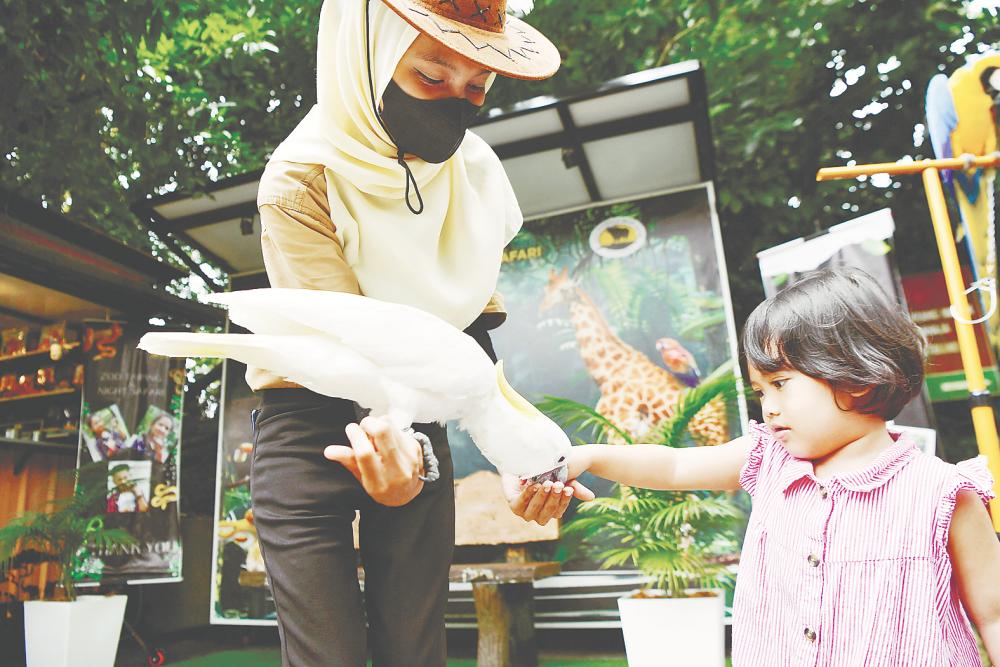SCHOOL holidays in Malaysia are a time for families to step away from daily routines and embrace the joys of travel and adventure.
Whether it is camping in lush rainforests, hiking through serene trails or spending a day at a petting zoo, these activities promise lasting memories. Yet, amid the fun and excitement, it is easy to overlook the invisible risks that come with our interactions with nature and animals – zoonotic diseases.
Zoonotic diseases or infections transmitted from animals to humans may not cross your mind as you pack your picnic basket or set up your tent. However, they are a real concern, particularly during holiday activities that bring us closer to nature and the animal world.
While these encounters enrich our lives, they can also expose us to health risks that are often hidden beneath the surface.
During a recent hike with a group of friends, I was reminded of how intertwined we are with nature. As we admired a crystal-clear stream, and after we had completely drained our drinking water, a friend asked if it was safe to drink from and wade in its inviting waters.
As tempting as it was, I hesitated. Streams, rivers and lakes, especially those surrounded by wildlife, are potential habitats for a whole range of pathogenic parasites and bacteria such as leptospira. Carried through the urine of infected animals, leptospira can cause leptospirosis, a disease that starts with fever and muscle aches but can escalate to kidney damage or even death if untreated. However, boiling or adding a disinfectant tablet can eliminate these dangers.
Similarly, petting zoos – charming as they are – pose their own set of challenges. Children, with their natural curiosity and tendency to touch everything, are particularly susceptible to zoonotic risks in such environments.
Animals may carry gastrointestinal parasites like cryptosporidium or giardia, which can lead to unpleasant symptoms such as diarrhoea, stomach cramps and vomiting. These parasites often spread through contact with contaminated food, water, soil or on surfaces that have been contaminated with infected faeces.
Even seemingly harmless activities like enjoying fresh produce at a farmer’s market can carry risks. Fruits and vegetables that are improperly washed or come in contact with contaminated soil or water can harbour parasites. These microscopic threats are invisible to the naked eye but can have far-reaching effects on our health, particularly for young children, pregnant women and those with weakened immune systems.
Much like the hidden depths of a character in a Jane Austen novel, these threats remain largely unseen until brought to light. In Pride and Prejudice, Elizabeth Bennet remarks: “People themselves alter so much that there is something new to be observed in them forever.” The same can be said of our interactions with the natural world – there is always more to learn and uncover, often revealing things we may have overlooked.
However, the good news is that enjoying the great outdoors or visiting petting zoos does not mean you must compromise your family’s health. With some simple precautions, you can minimise the risks while savouring your holiday adventures.
Firstly, prioritise good hygiene. Encourage children to wash their hands thoroughly with soap and water after touching animals, soil or water sources. When soap and water are unavailable, a hand sanitiser can be a practical alternative.
When engaging with nature, ensure the consumption of fresh produce and water is free from pathogens by washing the food thoroughly to remove dirt and potential contaminants, and always boil water. If the produce has a tougher skin, consider using a vegetable brush for added safety.
For those planning hiking or camping trips, wearing proper footwear is crucial. It not only prevents injuries but also minimises direct contact with contaminated soil or water. If wading in water is unavoidable, water-resistant boots can offer an extra layer of protection. Treat cuts and grazes immediately.
Lastly, always be vigilant for any signs of illness after a holiday outing. Symptoms like fever, diarrhoea or muscle pain should not be ignored. If anyone in your family experiences such symptoms, consult a healthcare professional promptly. Early medical attention can make a significant difference in preventing complications.
Shared responsibility
As parents and caregivers, our role extends beyond planning itineraries and packing snacks. Just as we prepare for physical challenges like rainy weather or steep trails, we must also equip ourselves to protect our families from the unseen threats that holiday adventures can bring.
Reflecting on this, I am reminded of George Knightley’s wise words to Emma Woodhouse: “There is a comfort in having a decided opinion, even if it be only a decided opinion that something must be done.” Indeed, something must be done – not to avoid nature or animals but to engage with them responsibly.
Let us embrace the school holiday season with open hearts and informed minds. By taking a few simple health precautions, we can ensure that our adventures are not only memorable but also safe and enriching.
Prof Dr Siti Nursheena Mohd Zain is a professor at the Institute of Biological Sciences, Faculty of Science, Universiti Malaya and an advocate for zoonotic disease awareness. Comments: letters@thesundaily.com









